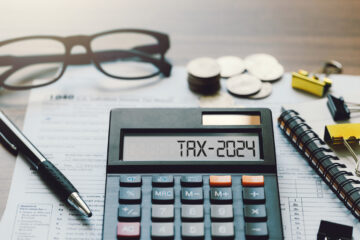By: Anton Kozyrev
In 2003, the SARS epidemic hit Hong Kong – and it hit hard. Hong Kong would go on to suffer 299 deaths related to the airborne illness – one-fifth of the global death total. This harrowing chapter served as the impetus for a major shift in Hong Kong officials and legislators’ mentality and approach to infectious diseases. The people of Hong Kong became more diligent when it came to illness, with a variety of measures ranging from habitually wearing surgical masks for a cold or flu to comprehensive education on how illnesses are transmitted.
These efforts proved crucial when the ongoing COVID-19 pandemic began in Wuhan, China. Hong Kong acted swiftly and decisively to implement proper social distancing measures and other precautions, never allowing the infections to spiral out of control as they have in countries such as the U.S. and many European nations. In fact, Hong Kong never had a need to impose a full lockdown. The island city-state of Singapore has also done well in mitigating the impacts of this pandemic, having addressed several initial blunders and oversights concerning unmitigated spread among migrant workers.
Now, Hong Kong and Singapore have announced a joint plan to resume normal air travel between the two Asian hubs – forming a “travel bubble” of sorts intended to boost tourism. The bubble had been scheduled to go into effect on the 22nd of November, but was pushed back at least two weeks because of a recent uptick in infections in Hong Kong. Regardless of the delay, such ambitious and economically-centered proposals signal yet another potential challenge awaiting the global economy in the wake of this devastating pandemic. The Hong Kong and Singapore travel bubble is but one instance of how the world will continue to move on, leaving nations still struggling with the pandemic behind economically.
It is possible, perhaps even probable, that the effectiveness of nations’ responses to the pandemic will dictate their ability to grow economically, on top of the struggles the pandemic inflicts on economic recovery. Nations such as China, Singapore, Hong Kong, Taiwan, and New Zealand will find it easier to facilitate trade and economic expansion amongst themselves due to a safer environment caused by a controlled approach to COVID-19. Nations that have the highest per capita counts, such as Belgium, the U.K., the U.S., and Brazil, will be effectively “left out of the loop” when it comes to post-pandemic economic growth.
There are already key examples of how the “COVID-free world” is leaving the rest of the world behind. According to state-run Xinhua News, China, for instance, is already finalizing its preparations to host the 2022 Winter Olympic Games, signaling a high level of confidence in China’s ability to continue to grow and develop well after the pandemic is over.
While the pandemic and its aftermath will have massive implications for strong, developing countries, it primarily damages global economic growth by hurting the most vulnerable nations – those with fragile, developing economies. One of the most impacted demographics globally has been households living below the poverty line – which, of course, would have a proportionally-greater impact on developing nations with greater poverty rates.
While it is difficult to conduct expansive and comprehensive surveys in many regions of the world due to current circumstances on the status and trend of extreme income poverty, The Brookings Institution has conducted several key studies and concluded that the pandemic will have lasting effects and repercussions that will be felt for years to come. Prior to the COVID-19 pandemic, the percentage of the global population living in extreme income poverty was anticipated to decline from 8.4% in 2019 to 6.3% in 2030. Now, however, analysts are suggesting that the number in 2030 is likely to be closer to 7%, which will have major implications for the future of innovation and economic growth in the future.
The important thing to understand and remember is that while the COVID-19 pandemic’s direct impacts on the economy are short-lived and temporary – as evidenced by China’s relatively V-shaped recovery – the factor that ultimately determines a nation’s long-term economic fate is the response to the pandemic, not the pandemic itself.
There are many factors that tie into a nation’s decision not to take extensive measures and urgently-needed actions – but chief among them tends to be an economic concern. In June of 2020, U.S. Treasury Secretary Steven Mnuchin adamantly stated that the U.S. economy could not handle another lockdown, claiming that the benefits of such measures were not justifiable due to the economic blow. However, keeping the economy open at all costs only looks appealing in the short-term. In the long term, the damage and fallout from both the economic devastation of the pandemic itself and the repercussions of falling behind the “COVID-free world” will cause far more economic damage and destabilize the global economy.
Unfortunately, many elected officials have a propensity to think in the “short-term” rather than the “long-term” — after all, they always have an upcoming election to win. In this instance, it is essential that policymakers put aside campaigning and focus on legislating for the greater good. Governments worldwide need to take proper measures and get a handle on the pandemic once and for all.



